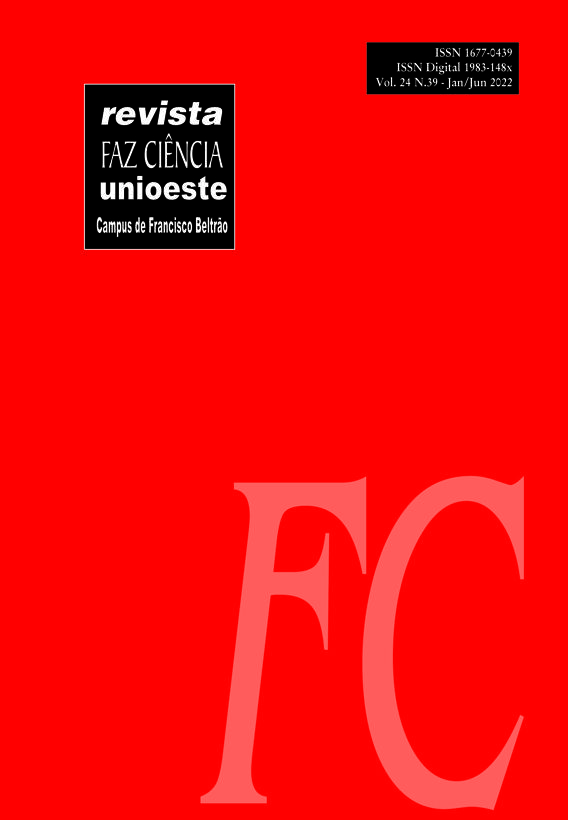SUBJECTIVITY AS A POWER OF THOUGHT: FEMALE IDENTITY LINES IN TEACHING
LINHAS IDENTITÁRIAS FEMININAS NA DOCÊNCIA
DOI:
https://doi.org/10.48075/rfc.v24i39.28214Abstract
In the light of some conceptual notions by Gilles Deleuze and Felix Guattari, we seek to think from the three lines of assemblages, which are characterized as knowledge, rhizomatic knowledge. The lines trigger, in situations of analysis, female subjectivity, a path of many encounters with thoughts and production of teaching identities. The objective of the study is to explore the creative potential in an analogous situation of the lines when emerging from the female subjectivities in the teaching practice, as well as promoting an understanding of the subjectivation processes, according to the interpretative bias of the lines. The methodological approach used is supported by bibliographical research as a study of art and, in cartography, as a means of understanding the processes of female subjectivation in teaching. The leveraged perspectives point to a broadened horizon, on movements of thought, in which the notion of subjectivity is enhanced, as the construction of a practice aimed at the singularities of female subjects.
Downloads
Published
How to Cite
Issue
Section
License

This work is licensed under a Creative Commons Attribution-NonCommercial-ShareAlike 4.0 International License.
Aviso de Direito Autoral Creative Commons
Política para Periódicos de Acesso Livre
Autores que publicam nesta revista concordam com os seguintes termos:
1. Autores mantém os direitos autorais e concedem à revista o direito de primeira publicação, com o trabalho simultaneamente licenciado sob a Licença Creative Commons Attribution que permite o compartilhamento do trabalho com reconhecimento da autoria e publicação inicial nesta revista.2. Autores têm autorização para assumir contratos adicionais separadamente, para distribuição não-exclusiva da versão do trabalho publicada nesta revista (ex.: publicar em repositório institucional ou como capítulo de livro), com reconhecimento de autoria e publicação inicial nesta revista.
3. Autores têm permissão e são estimulados a publicar e distribuir seu trabalho online (ex.: em repositórios institucionais ou na sua página pessoal) a qualquer ponto antes ou durante o processo editorial, já que isso pode gerar alterações produtivas, bem como aumentar o impacto e a citação do trabalho publicado (Veja O Efeito do Acesso Livre).
Licença Creative Commons
Esta obra está licenciada com uma Licença Creative Commons Atribuição-NãoComercial-CompartilhaIgual 4.0 Internacional, o que permite compartilhar, copiar, distribuir, exibir, reproduzir, a totalidade ou partes desde que não tenha objetivo comercial e sejam citados os autores e a fonte.


